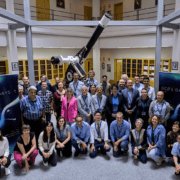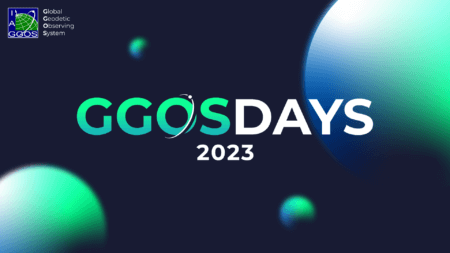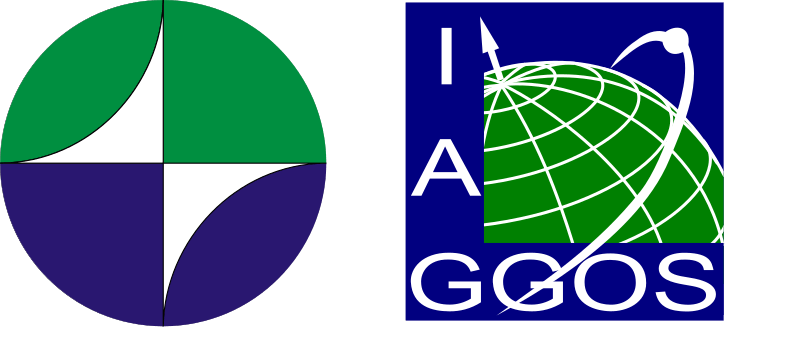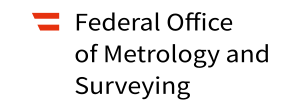Report of the GGOS Days 2023
GGOS convenes its various components annually to report on achievements and formulate activities for the future. On this occasion, the Instituto Geográfico Nacional of Spain hosted the GGOS Days in Alcalá de Henares from 20th to 22nd September 2023. The meeting was hybrid, enabling remote participation, and had 192 attendees, 40 of whom were present in person.
The conference agenda included 10 sessions, beginning with a presentation by Spanish and Portuguese colleagues outlining the current status and future plans for space geodesy in their respective countries. Noteworthy was the informed decision to install the GGOS Affiliate Iberatlantic. The keynote speaker session featured three pertinent contributions on interesting geodetic subjects:
- The contribution of superconducting gravimetry to Earth System observations;
- Hydrodynamic levelling for modelling hydrodynamics in coastal regions; and
- Glacial isostatic adjustment (GIA) and its significance in geodesy.
- Additionally, a presentation on the usage of K-Band (24 GHz) in geodesy was given.
As GGOS Affiliate Japan celebrates its 10th anniversary, its major accomplishment is deploying the latest technology in Japanese fundamental geodetic observatories. The GGOS Affiliate D-A-CH focuses on creating methodologies that combine and integrate all geodetic techniques consistently. This goal enhances the precision and dependability of geodetic outcomes.
The GGOS External Activities presentations highlighted recent accomplishments of the UN Sub-Committee on Geodesy, perspectives for South America’s involvement in GGOS, and the collaborative efforts of the IAG’s Communication and Outreach Branch and the Coordinating Office of GGOS to enhance the visibility of the IAG and Geodesy. Initiatives promoting the FAIR (Findable, Accessible, Interoperable, and Reusable) data principles within the IAG were extensively discussed. Specifically, the utilization of DOIs for geodetic data and products and the implementation of the GGOS portal as a convenient one-stop-shop for all geodetic products from IAG and its various components were emphasized.
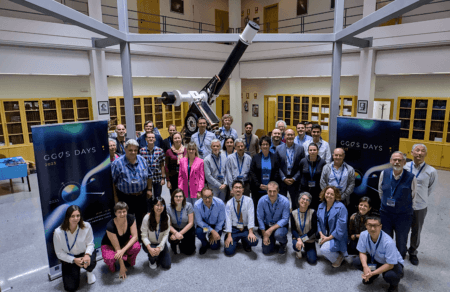 On-site participants of the GGOS Days 2023 (GGOS Days Photo Gallery)
On-site participants of the GGOS Days 2023 (GGOS Days Photo Gallery)
In the GGOS Bureau of Networks and Observations (BNO) session, the IAG Services presented recent achievements and new challenges objectively. This session provided a comprehensive overview of current Service activities. Additionally, the Committee PLATO (Performance Simulations and Architectural Trade-Offs) presented an update on recent simulations aimed at enhancing the geometric configuration of space geodetic reference stations. The Committee on Satellite Missions provided an assessment of the technical features and application areas of the newly sanctioned gravity mission MAGIC (Mass change and geoscience international constellation). The Committee on Data and Information Systems reported on the progress in deploying GeodesyML (Geodesy Markup Language), a tool that simplifies the manipulation of geodetic data and metadata, including those related to equipment, site logs, measurement, adjustment, quality, monuments, reference frames, and data lineage. The GGOS/IERS joint working group on Site Survey and Colocation shared information about the local ties that have been measured at 20 stations since 2020. The number of intra-technique vectors increased from 212 to 253.
At the GGOS Bureau of Products and Standards (BPS) session, after an overview presentation showing objectives, structure and activities of this Bureau, interesting discussions about the computation of a new reference level ellipsoid and the implementation of a catalogue with Essential Geodetic Variables were conducted. This session closed with a review of the Committee Contributions to Earth System Modelling.
Regarding the GGOS Focus Areas (FA), the FA Unified Height System presented a final report about the integration of its activities into the IAG Commission 2 (Gravity Field) and the IGFS (International Gravity Field Service). This FA was dissolved at the General Assembly of the IUGG (International Union of Geodesy and Geophysics) in Berlin in July 2023, having achieved its objectives. The FA on Geohazards presented a status report focused on the advancement of GNSS-based Tsunami Early Warning Systems (GTEWS) and the establishment of a GTEWS capability for the South Pacific’s Oceania region. The FA on Geodetic Space Weather Research summarised accomplishments in four research areas, namely: the coupling processes among the magnetosphere, thermosphere and ionosphere; modelling of the electron density; development of thermosphere models; and comprehension of space weather events and their supervising through satellite missions. The recently established FA on Artificial Intelligence for Geodesy (AI4G) reported on strategies for the development and evaluation of improved geodetic products based on AI and machine learning. Specific presentations on AI for GNSS remote sensing, gravity field and mass change, prediction of Earth orientation parameters, and geodetic deformation monitoring were given. In addition, the topics and objectives of two new potential focus areas on the combination of tropospheric parameters and the integrated analysis of GNSS and InSAR data were discussed.
The remaining sessions were devoted to redefining the memberships of the GGOS management structure, following the customary practice within the IAG every four years.
The GGOS Days 2023 featured a technical visit to the Yebes Observatory, a notable scientific facility focused on astronomical and geodetic research and observation, and a key contributor to the IAG and its Services. The Yebes Observatory staff conducted a comprehensive tour of the recently installed equipment and facilities for the conference attendees over the course of an entire afternoon. The exceptional professionalism and friendly welcome of our colleagues at Yebes Observatory created an unforgettable visit.
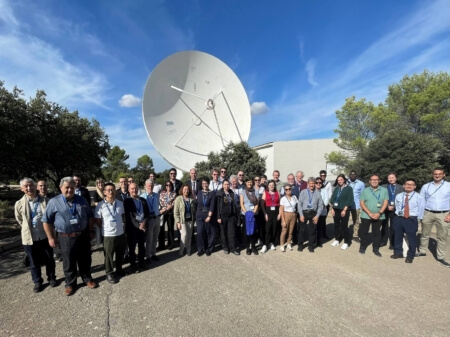 Visiting the Yebes Observatory (GGOS Days Photo Gallery)
Visiting the Yebes Observatory (GGOS Days Photo Gallery)
Further information regarding the GGOS Days 2023 conference, presentations, and outputs can be accessed at: https://ggos.org/event/ggos-days-2023/
We extend our sincerest gratitude to the Instituto Geográfico Nacional and the Yebes Observatory staff for their unwavering commitment in organizing this successful meeting. Moreover, we are thankful to the numerous speakers who, through their dedication and hard work, make GGOS possible. We would also like to thank all participants for their interest and active contribution to the discussion. Finally, we express our special gratitude to the IAG Office for providing travel awards to some participants, enabling them to attend this event.
Full Report of the GGOS Days 2023 (https://zenodo.org/records/10039957)
Laura Sánchez, GGOS President, Deutsches Geodätisches Forschungsinstitut der Technischen Universität München (DGFI-TUM), Germany
José Antonio López Fernández, Chair of the Local Organizing Committee, Instituto Geográfico Nacional, Spain
Martin Sehnal, Director of the GGOS Coordinating Office, Federal Office of Metrology and Surveying, Austria

